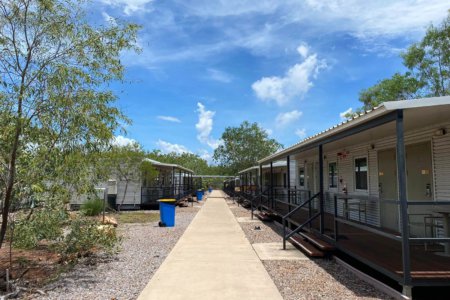
There seems to be no light in sight for international PhD students who are locked out of Australia since the country closed its borders to non-citizens and non-residents in March. The first batch of international students touched down in Darwin last month via a pilot programme by the Northern Territory and Charles Darwin University, but this has done little to placate doctoral students who lament that they have much at stake by remaining locked out of the country, especially in their inability to conduct fieldwork.
A Twitter campaign #LetUsBackToAus sees international students highlighting their frustrations over their inability to return to Australia due to COVID-19 related closures. Twitter user Stefanie Ruediger (Rüdiger), who according to her profile is a PhD candidate at the University of Queensland, said, “‘Your circumstances have been assessed against the Australian COVID-19 travel restrictions…. On the basis of the information provided, I have concluded that your circumstances do not outweigh the risk to the Australian community’ – SO tired of reading this. 3rd rejection …I’m starting the 3rd year of my PhD in 2 wks not knowing if or how I will be able to return to AUS to continue our research & to see my closest friends again. Not mentioning that most of my belongings are still in Brisbane & I am still paying rent. 2020 – I am done #LetUsBackToAus”.
Another user who goes by the moniker DrSedge said in a Twitter thread, “Dear Australia, I have an International research student working with me. He has just lost its uncle age 49, to COVID-19. His father (age 50’s) & brother are currently both in hospital with #covid19. This is what @DanielAndrewsMP working to prevent in Australia. #IStandWithDan. 2/. Australia is a rich country. Australia should do more to help our an #InternationalStudents. We are a culturally richer country from their presence.”
International student Sanjana Bhardwaj told SBS Hindi that after beginning the theoretical work of her research in July 2019, she was supposed to begin her full-fledged fieldwork in February 2020, but the onset of pandemic stalled her progress. “Once the pandemic hit, my participants had their own set of problems and the research was not a priority for anyone.” Bhardwaj said her current predicament and isolation from home may have taken a toll on her, but that regular contact with her research supervisors as well as family and friends has kept her going.
Can Australia expect an exodus of PhD students?
I’m usually not posting any “political things”, but this is a pressing issue & is not only affecting me and all my research, but a lot of other international PhD students in Australia – The Australian government needs to find a save way to allow students back to Australia …1/2
— Stefanie Ruediger (Rüdiger) (@RuediSteffi) October 16, 2020
The continued closure of Australia’s borders spells plenty of uncertainty for many. Some PhD theses are experimental and based on fieldwork, thus requiring students to continue their education in person. This can affect whether or not they graduate. Some students also risk losing their offers and scholarships, which might force them to explore their options in other countries. According to a study from the University of Sydney, researchers said 75% of students expect to experience financial hardship as a result of the pandemic while 45% report being pushed beyond their financial capacities and expect to be forced to disengage from their research within six months. “Such a severe disruption to the research community may have longer-term consequences for essential advances in research innovation and knowledge development crucial to governments, corporations, and universities,” said researchers.
Despite a seemingly bleak outlook, Australia’s federal government is injecting three billion Australian dollars into university research programmes in the 2021 academic year for student scholarships, academic salaries, laboratories and research equipment. Education Minister Dan Tehan said the funding will provide support to more than 40,000 Masters and PhD research students in 2021, while the government is also investing AU$5.8 million to design a scheme that accelerates the commercialisation of research, and AU$900 million to incentivise university engagement with industry.
“We want our universities to get better at turning research into new products and innovations that drive job creation, business opportunities and productivity gains,” said Tehan. “Our strong investment in research and development will help ensure Australian researchers can turn ideas into new knowledge that will support our economic recovery and help create employment opportunities.” The government will spend AU$13 billion on university research over four years.










